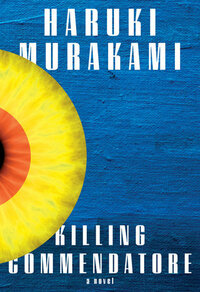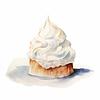Take a photo of a barcode or cover
adventurous
dark
mysterious
medium-paced
Plot or Character Driven:
A mix
Strong character development:
Yes
Loveable characters:
No
adventurous
mysterious
reflective
tense
slow-paced
Plot or Character Driven:
A mix
Strong character development:
No
Loveable characters:
Yes
Diverse cast of characters:
Yes
Flaws of characters a main focus:
No
mysterious
reflective
slow-paced
Plot or Character Driven:
A mix
Strong character development:
Yes
Loveable characters:
Yes
Diverse cast of characters:
Complicated
Flaws of characters a main focus:
Yes
A very typical Murakami book and so I can't help feeling a little sad that I feel so little resonance with it, considering he's always been one of my favorite recommendations to give to people looking for new authors.
Unfortunately or not, I guess I'm past the stage where I want to read about emotionless sexual affairs and ambiguous strangers with mysterious requests and a narrator with unfulfilling lives.
All that aside, the translation was dry af.
Unfortunately or not, I guess I'm past the stage where I want to read about emotionless sexual affairs and ambiguous strangers with mysterious requests and a narrator with unfulfilling lives.
All that aside, the translation was dry af.
Some strong similarities to Wind-Up Bird Chronicles (the well theme, a magical realism and subterranean world, a man estranged from his wife, etc.), but Killing Commendatore all landed much better for me. The characters were quirky in just the right ways and the Odawara mountain setting was a perfect backdrop for all of the strangeness.
challenging
mysterious
reflective
slow-paced
Plot or Character Driven:
A mix
Strong character development:
Complicated
Loveable characters:
Complicated
Diverse cast of characters:
No
Flaws of characters a main focus:
Yes
“Killing Commendatore” is rather similar to Murakami’s previous work “The Wind-Up Bird Chronicle” in that they both follow a man who stays at home after recently separating from his wife. Said man develops a friendship with a girl much too young and ends up wrapped in some supernatural accordance. However, this work is miles ahead of “Wind-Up Bird”.
It’s obvious from reading this that Murakami has only gotten better with age. While “Killing Commendatore” has a plot line and elements just as outlandish as “Wind-Up Bird”, they are handled and executed it a much more masterful way that the novel ends up a much more satisfying read. Its characters are much more interesting and you find yourself very invested in the plight of our nameless protagonist and want to see his life turn out alright.
I loved the focus on art in this novel and I found the idea that a creature could be born from a painting very fascinating. The exploration of the power that art can hold is one of the highlights of this novel. Supernatural elements are handled excellently; Murakami has truly struck the balance between fantasy and domestic elements. Despite being nearly seven hundred pages long, I was gripped by every page and found myself not wanting to put the book down. I have never experienced a novel so engaging.
The ending is what brings this novel into five star territory - it is exactly what was missing from “Wind-Up Bird”. I was incredibly pleased that our protagonist got back together with his wife that I started smiling wide. The addition of their daughter and the idea that she was a gift from all the Ideas he had encountered was wonderful too. I felt that it wrapped things up in a logical way and gave concentre and satisfying endings to each of the important characters in the novel.
Overall, I cannot recommended this book enough. Aside from its intimidating length, there was not a thing I disliked about this book. Definitely an excellent read you won’t regret.
EDIT: had some more thoughts a day after I wrote this review.
Menshiki was incredibly interesting and one of the highlights of the book; I only wish we got to know more about him. His white mansion, obsession with Mariye and relationship with Shoko were very engaging and it felt like he had a satisfying character arc even though most of the mysteries surrounds him remained unsolved. It seemed like he was the sort of person who defied explanation. His parental troubles acted as a good way to link him to the other characters and also made him act as a foil for our main character. Seeing the protagonist in a similar situation with his daughter, it’s clear that the novel throughout was comparing Menshiki and the protagonist. It’s an incredibly interesting use of character and I look forward to eventually re-reading this book in order to pick up on this trend a little earlier.
It’s obvious from reading this that Murakami has only gotten better with age. While “Killing Commendatore” has a plot line and elements just as outlandish as “Wind-Up Bird”, they are handled and executed it a much more masterful way that the novel ends up a much more satisfying read. Its characters are much more interesting and you find yourself very invested in the plight of our nameless protagonist and want to see his life turn out alright.
I loved the focus on art in this novel and I found the idea that a creature could be born from a painting very fascinating. The exploration of the power that art can hold is one of the highlights of this novel. Supernatural elements are handled excellently; Murakami has truly struck the balance between fantasy and domestic elements. Despite being nearly seven hundred pages long, I was gripped by every page and found myself not wanting to put the book down. I have never experienced a novel so engaging.
The ending is what brings this novel into five star territory - it is exactly what was missing from “Wind-Up Bird”. I was incredibly pleased that our protagonist got back together with his wife that I started smiling wide. The addition of their daughter and the idea that she was a gift from all the Ideas he had encountered was wonderful too. I felt that it wrapped things up in a logical way and gave concentre and satisfying endings to each of the important characters in the novel.
Overall, I cannot recommended this book enough. Aside from its intimidating length, there was not a thing I disliked about this book. Definitely an excellent read you won’t regret.
EDIT: had some more thoughts a day after I wrote this review.
Menshiki was incredibly interesting and one of the highlights of the book; I only wish we got to know more about him. His white mansion, obsession with Mariye and relationship with Shoko were very engaging and it felt like he had a satisfying character arc even though most of the mysteries surrounds him remained unsolved. It seemed like he was the sort of person who defied explanation. His parental troubles acted as a good way to link him to the other characters and also made him act as a foil for our main character. Seeing the protagonist in a similar situation with his daughter, it’s clear that the novel throughout was comparing Menshiki and the protagonist. It’s an incredibly interesting use of character and I look forward to eventually re-reading this book in order to pick up on this trend a little earlier.
could tell this might be interesting but ultimately it was too slow for me to really get hooked
challenging
mysterious
reflective
tense
fast-paced
Plot or Character Driven:
Plot
Strong character development:
Yes
Loveable characters:
Yes
Diverse cast of characters:
No
Flaws of characters a main focus:
Complicated
Incredibly readable. I kept wanting to know what would happen next. It’s not a life-changing book or anything but definitely a fun read.
A wave of nostalgia is washing through me. I will discuss this with my friend and then come back and write something coherent. In the mean time, let me note that there's an inordinate but not surprising amount of times where nipples and vaginas were mentioned.





